
This fall, the leadership team at the J. William Fulbright College of Arts and Sciences named several new academic leaders to key positions in departments and centers throughout the college.
"Having these new leaders in place has allowed our college to hit the ground running this fall," said Todd Shields, dean of the Fulbright College. "And they have an immensely important task — providing guidance and leadership to our 19 academic departments and numerous centers to ensure our students receive the best education we can possibly provide, setting them up for future success."
Shields said the college's new leaders span the fine arts, humanities, natural sciences and social sciences, and include:
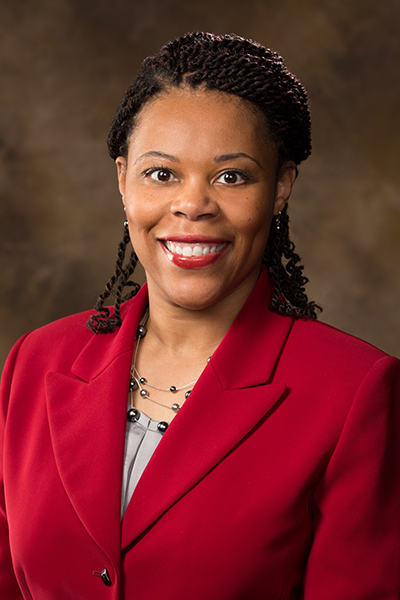 Pearl K. Dowe, chair, Department of Political Science — Dowe is currently researching political attitudes, behaviors and campaign challenges of African American women. Her most recent book, co-authored with her mentor, the late Hanes Walton, Jr. and Josephine Allen, Remaking The Democratic Party: Lyndon B. Johnson As A Native-Son Presidential Candidate, was published in 2016 from University of Michigan Press. She served as Co-Program Chair for the 2016 National Conference of Black Political Scientists Annual Conference, is the department's former vice chair and graduate coordinator, former interim director of the African and African American Studies Program and is a member of the Southern Political Science Association Executive Council.
Pearl K. Dowe, chair, Department of Political Science — Dowe is currently researching political attitudes, behaviors and campaign challenges of African American women. Her most recent book, co-authored with her mentor, the late Hanes Walton, Jr. and Josephine Allen, Remaking The Democratic Party: Lyndon B. Johnson As A Native-Son Presidential Candidate, was published in 2016 from University of Michigan Press. She served as Co-Program Chair for the 2016 National Conference of Black Political Scientists Annual Conference, is the department's former vice chair and graduate coordinator, former interim director of the African and African American Studies Program and is a member of the Southern Political Science Association Executive Council.
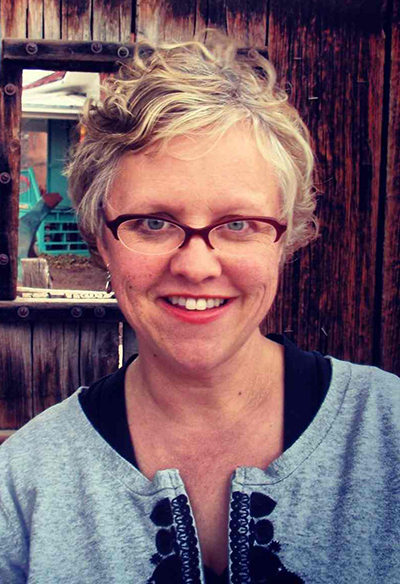 Kirstin C. Erickson, director of the Fulbright College Honors Program — Erickson is also an associate professor of anthropology and is the former director of the Latin American and Latino Studies Program. She teaches courses on the U.S.-Mexico Borderlands, Religion in Latin America, Museums and Material Culture, Performance and Narrative Theory, and Indigenous Studies. She has published extensively on northern Mexico's Yaqui Tribe, and her latest research focuses primarily on Latino culture and identity in the Southwest. She is currently at work on a book project exploring cultural production, vernacular religion, and the negotiation of Hispano heritage in New Mexico.
Kirstin C. Erickson, director of the Fulbright College Honors Program — Erickson is also an associate professor of anthropology and is the former director of the Latin American and Latino Studies Program. She teaches courses on the U.S.-Mexico Borderlands, Religion in Latin America, Museums and Material Culture, Performance and Narrative Theory, and Indigenous Studies. She has published extensively on northern Mexico's Yaqui Tribe, and her latest research focuses primarily on Latino culture and identity in the Southwest. She is currently at work on a book project exploring cultural production, vernacular religion, and the negotiation of Hispano heritage in New Mexico.
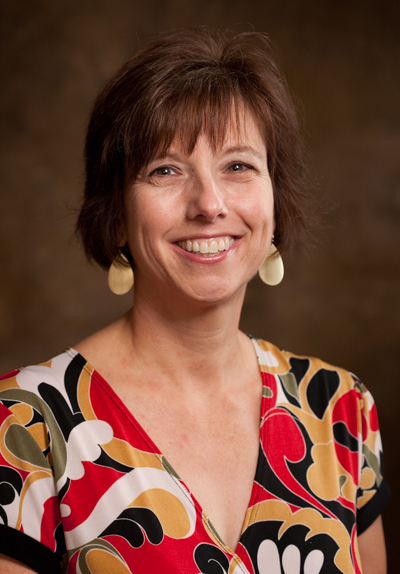 Alishia Ferguson, interim director, School of Social Work — Ferguson practiced medical social work for 18 years, focusing on older adults and on medical education. She is a clinical associate professor in the school, teaching online and face to face, while continuing her research on aging. She serves as coordinator for the school's online Master of Social Work program and is a co-investigator for the community-university initiative, Age Friendly Fayetteville. She presents on social work ethics, supervises social work interns and serves on the Washington Regional Faith in Action board, the Seniors and Law Enforcement Together (S.A.L.T.) board and the Washington Regional Hospice board.
Alishia Ferguson, interim director, School of Social Work — Ferguson practiced medical social work for 18 years, focusing on older adults and on medical education. She is a clinical associate professor in the school, teaching online and face to face, while continuing her research on aging. She serves as coordinator for the school's online Master of Social Work program and is a co-investigator for the community-university initiative, Age Friendly Fayetteville. She presents on social work ethics, supervises social work interns and serves on the Washington Regional Faith in Action board, the Seniors and Law Enforcement Together (S.A.L.T.) board and the Washington Regional Hospice board.
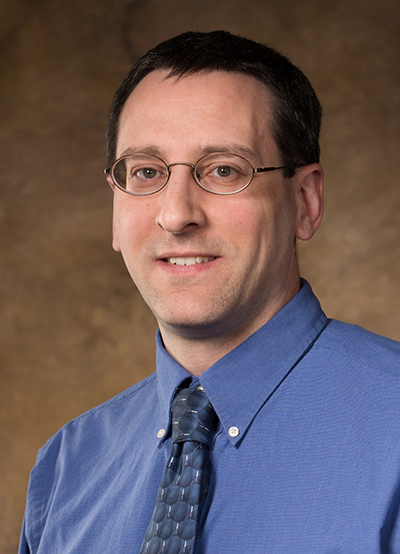 Laurence Hare, director of the European Studies Program — Hare is also an associate professor of history, and serves as director of the International Studies Program. He specializes in the intellectual and cultural history of modern Germany and Scandinavia and is the author of Excavating Nations: Archaeology, Museums, and the German-Danish Borderlands (University of Toronto Press, 2015), which explores the uses of the distant past in the creation of modern nation-states. The project was supported by a German Chancellor Fellowship from the Alexander-von-Humboldt Foundation and recognized with the Aurora Borealis Prize from the Society for the Advancement of Scandinavian Study.
Laurence Hare, director of the European Studies Program — Hare is also an associate professor of history, and serves as director of the International Studies Program. He specializes in the intellectual and cultural history of modern Germany and Scandinavia and is the author of Excavating Nations: Archaeology, Museums, and the German-Danish Borderlands (University of Toronto Press, 2015), which explores the uses of the distant past in the creation of modern nation-states. The project was supported by a German Chancellor Fellowship from the Alexander-von-Humboldt Foundation and recognized with the Aurora Borealis Prize from the Society for the Advancement of Scandinavian Study.
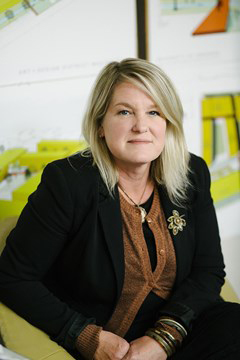 Jeannie Hulen, associate dean of fine arts, Fulbright College — Hulen joined the University of Arkansas faculty in 2002 and in addition to serving as chair of the former Department of Art since 2010, she is an associate professor of ceramics. As a ceramics and multimedia sculptor, her installation work has been exhibited here and abroad, and examines issues related to the body, globalism and personal narrative. She was also instrumental in creating the vision that resulted in a $120 million transformational gift from the Walton Family Charitable Foundation that established the university's new School of Art, which is the largest gift ever given to a U.S. university in support of or to establish a school of art.
Jeannie Hulen, associate dean of fine arts, Fulbright College — Hulen joined the University of Arkansas faculty in 2002 and in addition to serving as chair of the former Department of Art since 2010, she is an associate professor of ceramics. As a ceramics and multimedia sculptor, her installation work has been exhibited here and abroad, and examines issues related to the body, globalism and personal narrative. She was also instrumental in creating the vision that resulted in a $120 million transformational gift from the Walton Family Charitable Foundation that established the university's new School of Art, which is the largest gift ever given to a U.S. university in support of or to establish a school of art.
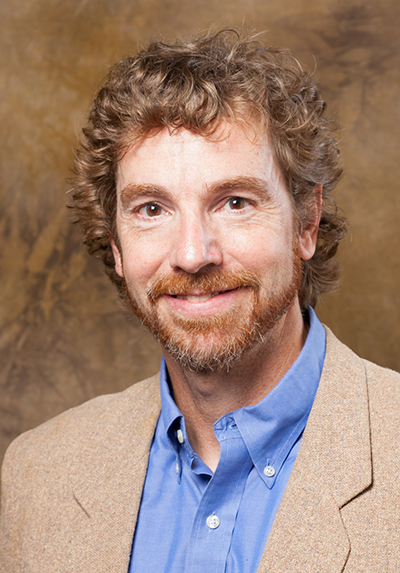 Mack Ivey, chair, Liebolt Premedical Sciences — Ivey is also an associate professor of biological sciences, and his research focuses on microorganisms living in extreme environments and the disease mechanisms of the human pathogen Clostridium difficile. Thirteen of his students have received SURFs, and 14 have received Honors College Fellowships. Ivey has served as departmental honors advisor and on the Fulbright College honors council. He has received six Outstanding Mentor Awards, and has been recognized with the SAB/ASG Teacher of the Year Award in 2009, the Fulbright College Outstanding Advisor Award in 2011, and the Honors College Distinguished Faculty Award in 2015.
Mack Ivey, chair, Liebolt Premedical Sciences — Ivey is also an associate professor of biological sciences, and his research focuses on microorganisms living in extreme environments and the disease mechanisms of the human pathogen Clostridium difficile. Thirteen of his students have received SURFs, and 14 have received Honors College Fellowships. Ivey has served as departmental honors advisor and on the Fulbright College honors council. He has received six Outstanding Mentor Awards, and has been recognized with the SAB/ASG Teacher of the Year Award in 2009, the Fulbright College Outstanding Advisor Award in 2011, and the Honors College Distinguished Faculty Award in 2015.
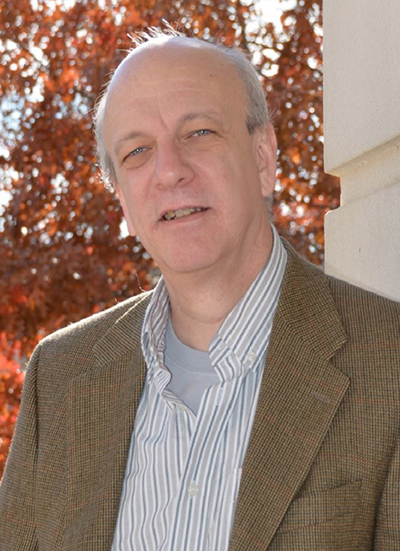 David McNabb, chair, Department of Biological Sciences — McNabb is also an associate professor of biology, and is involved in several collaborative projects to identify compounds or peptides that display antifungal activity for potential use in the treatment of fungal infections in humans. His research also includes studying the role of the CCAAT-binding factor in Candida albicans pathogenesis, and in particular, how this transcription factor regulates genes involved in iron uptake/utilization and genes involved in the oxidative stress response. Additionally, he is also researching the impact of graphene-based nanomaterials on human health to evaluate the toxicity of various graphene-based nanomaterials.
David McNabb, chair, Department of Biological Sciences — McNabb is also an associate professor of biology, and is involved in several collaborative projects to identify compounds or peptides that display antifungal activity for potential use in the treatment of fungal infections in humans. His research also includes studying the role of the CCAAT-binding factor in Candida albicans pathogenesis, and in particular, how this transcription factor regulates genes involved in iron uptake/utilization and genes involved in the oxidative stress response. Additionally, he is also researching the impact of graphene-based nanomaterials on human health to evaluate the toxicity of various graphene-based nanomaterials.
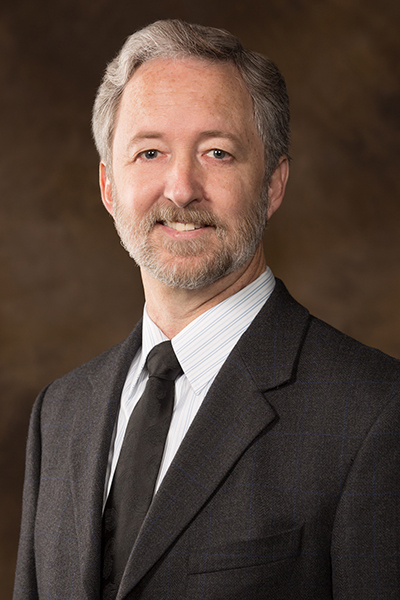 William "Lin" Oliver, chair, Department of Physics — Oliver is also a professor of physics, and is a condensed matter physicist interested in the properties of systems under extreme conditions of very high pressure. Recent results include the development of (i) light scattering techniques to probe glass-forming systems over an enormous dynamic range from picoseconds to minutes at record high pressures and (ii) high-pressure fluorescence techniques to measure the glass-transition temperature also to record pressures. These developments, published recently in Physical Review Letters, enabled tests of concepts such as density scaling and liquid fragility over unprecedented compression ranges.
William "Lin" Oliver, chair, Department of Physics — Oliver is also a professor of physics, and is a condensed matter physicist interested in the properties of systems under extreme conditions of very high pressure. Recent results include the development of (i) light scattering techniques to probe glass-forming systems over an enormous dynamic range from picoseconds to minutes at record high pressures and (ii) high-pressure fluorescence techniques to measure the glass-transition temperature also to record pressures. These developments, published recently in Physical Review Letters, enabled tests of concepts such as density scaling and liquid fragility over unprecedented compression ranges.
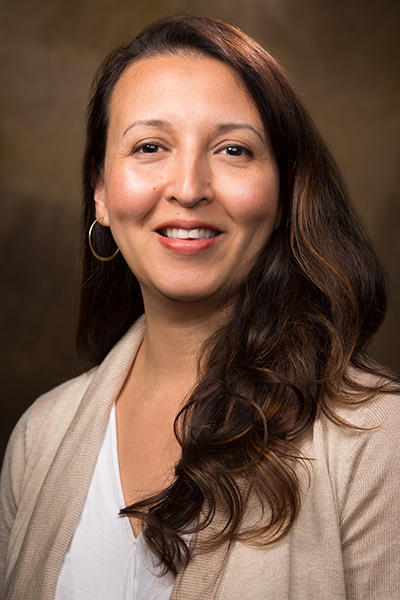 Yajaira Padilla, director of the Latin American and Latino Studies Program — Padilla is also an associate professor of English. Her research centers on Central American cultural and literary studies and Central Americans in a U.S. Latino context. She is the author of Changing Women, Changing Nation: Female Agency, Nationhood, and Identity in Trans-Salvadoran Narratives (SUNY 2012) and is working on a new project on the politics of Central Americans "belonging" and "non-belonging" in the United States. This book examines how Central American immigrants and subsequent generations construct collective identities within the U.S. thereby fostering a sense of "belonging" as an ethnic minority group and as "Americans."
Yajaira Padilla, director of the Latin American and Latino Studies Program — Padilla is also an associate professor of English. Her research centers on Central American cultural and literary studies and Central Americans in a U.S. Latino context. She is the author of Changing Women, Changing Nation: Female Agency, Nationhood, and Identity in Trans-Salvadoran Narratives (SUNY 2012) and is working on a new project on the politics of Central Americans "belonging" and "non-belonging" in the United States. This book examines how Central American immigrants and subsequent generations construct collective identities within the U.S. thereby fostering a sense of "belonging" as an ethnic minority group and as "Americans."
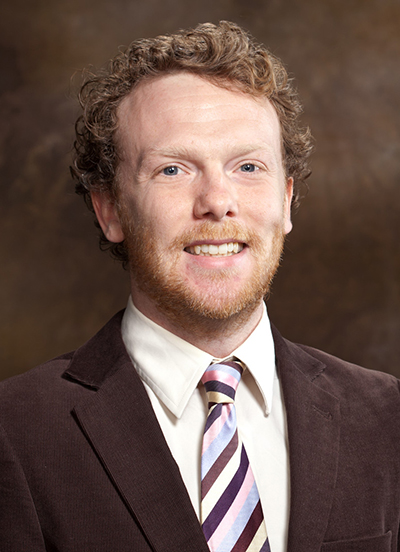 Joshua Byron Smith, director of the Medieval and Renaissance Studies Program — Smith is also an assistant professor of English. His research concerns the multilingual literary culture of high medieval Britain. He is interested in discovering networks of textual exchange between Wales and England, and in the English-language writing of the long-twelfth century (c.1066-1215). Smith's research supports a vision of medieval British literature that is diverse, transnational and multilingual. He is the author of Walter Map and the Matter of Brittain (University of Pennsylvania Press: Philadelphia, 2017), a Mellon Fellow in Critical Bibliography at the Rare Book School, and a senior fellow in the Andrew W. Mellon Society of Fellows in Critical Bibliography.
Joshua Byron Smith, director of the Medieval and Renaissance Studies Program — Smith is also an assistant professor of English. His research concerns the multilingual literary culture of high medieval Britain. He is interested in discovering networks of textual exchange between Wales and England, and in the English-language writing of the long-twelfth century (c.1066-1215). Smith's research supports a vision of medieval British literature that is diverse, transnational and multilingual. He is the author of Walter Map and the Matter of Brittain (University of Pennsylvania Press: Philadelphia, 2017), a Mellon Fellow in Critical Bibliography at the Rare Book School, and a senior fellow in the Andrew W. Mellon Society of Fellows in Critical Bibliography.
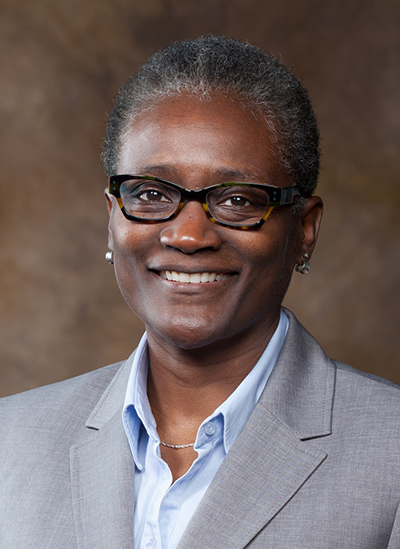 Valandra, director of the African and African American Studies Program — Valandra is also an assistant professor in the School of Social Work. Her research and numerous published works center on the voices of African American women and families marginalized and traumatized through systems of poverty, prostitution, domestic violence and sexual assault. It also emphasizes the strengths and protective factors developed within intergenerational parenting and family networks, which mitigate risks and promote resilience and recovery. Her research includes understanding the needs of African American families experiencing domestic violence in Northwest Arkansas, and child welfare and literacy in the Little Rock School District.
Valandra, director of the African and African American Studies Program — Valandra is also an assistant professor in the School of Social Work. Her research and numerous published works center on the voices of African American women and families marginalized and traumatized through systems of poverty, prostitution, domestic violence and sexual assault. It also emphasizes the strengths and protective factors developed within intergenerational parenting and family networks, which mitigate risks and promote resilience and recovery. Her research includes understanding the needs of African American families experiencing domestic violence in Northwest Arkansas, and child welfare and literacy in the Little Rock School District.
For more information about Fulbright College or any of its academic departments, please visit fulbright.uark.edu.
Contacts
Andra Parrish Liwag, director of communications
J. William Fulbright College of Arts and Sciences
479-575-4393,